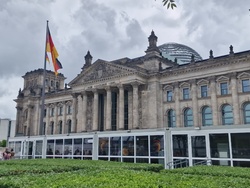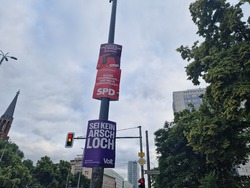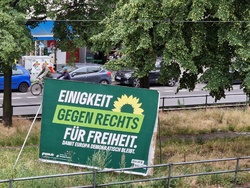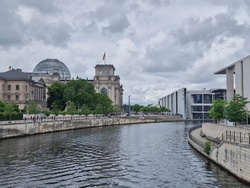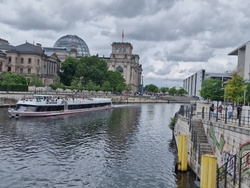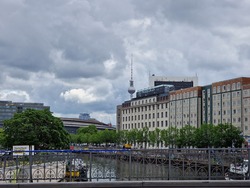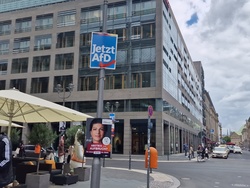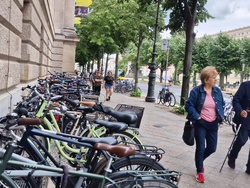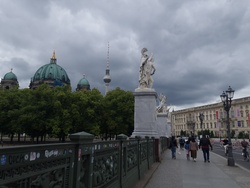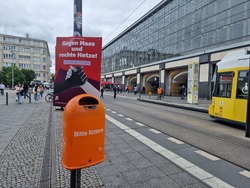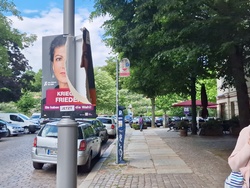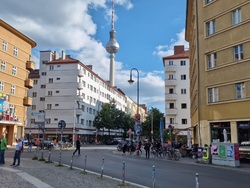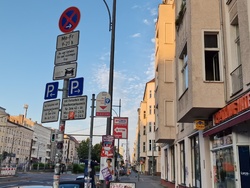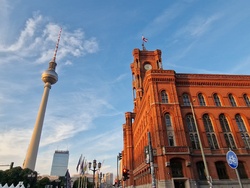site.btaGermany Is Readying for Two Big Events, European Elections Being First


On June 9, Germany will elect 96, or nearly 13% of the next European Parliament's 720 members. In the last days before the elections, the parties are winding up their campaigns and the MEP candidates are canvassing around the country.
Opinion polls give the conservative Christian Democratic Union/Christian Social Union alliance a solid lead - with 29% support from voters, the party is way ahead of its opponents in the latest INSA poll. The parties of the ruling traffic light coalition still lag behind with 14% for the Social Democrats, 13% for the Alliance 90/The Greens and just 4% for the Free Democratic Party - a trend seen as a protest vote against the government's failures. The far-right Alternative for Germany has seen the biggest change as it appears to be losing support after numerous scandals in recent weeks. Even so, however, it remains second with expected support of 16%.
The Sahra Wagenknecht Union founded a few months ago could attract 7% of the votes, finishing in fifth place.
In Berlin, the political race seems hardly noticeable at first glance. In recent days, there have been no major party events in the capital where the Left is traditionally strongest. Still, various civic groups organized numerous small-scale events, including a pro-Palestine demonstration in Alexanderplatz witnessed by BTA's reporter.
Posters hung on street lamps often go almost unnoticed among road signs and advertisements of restaurants and local businesses. More visible are the digital billboards on the grass strips between the lanes on boulevards where many people walk their pets.
Many Berlin residents have already cast their votes - interest in the mail vote option this year is much greater. Voting by mail began more than a month before Election Day and the filled-in ballots will be accepted until 6 pm on June 9 when polling stations will also close. It is too early to say exactly how many people have chosen this option, but data from late May, 12 days before Election Day, show 25.6% of voters in Berlin, or 637,113 people, had said they wanted to vote by mail. By comparison, just over 20%, or 505,663 people, voted by mail in 2019.
Opinion polls show two-thirds of young people view elections as an effective means of political change and voter turnout among them is expected to be significantly higher than the national average.
In Frankfurt, the financial capital of Germany and the heart of the eurozone, the faces and messages on the posters are the same as over 500 km away in Berlin. Although the federal principle allows parties to nominate separate lists and candidates in the provinces, almost all of them have opted for single lists. Frankfurt is Germany's fifth largest city and one of its most cosmopolitan ones - about one in three of its 770,000 residents are foreigners. Nearly 440,000 people - Germans and citizens of other EU countries - have the right to vote. In Frankfurt, the Greens finished first in the previous European Parliament elections, unlike the national election won by the Christian Democrats.
/RY/
Additional
news.modal.image.header
news.modal.image.text
news.modal.download.header
news.modal.download.text
news.modal.header
news.modal.text




